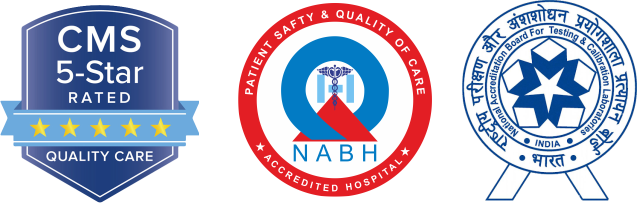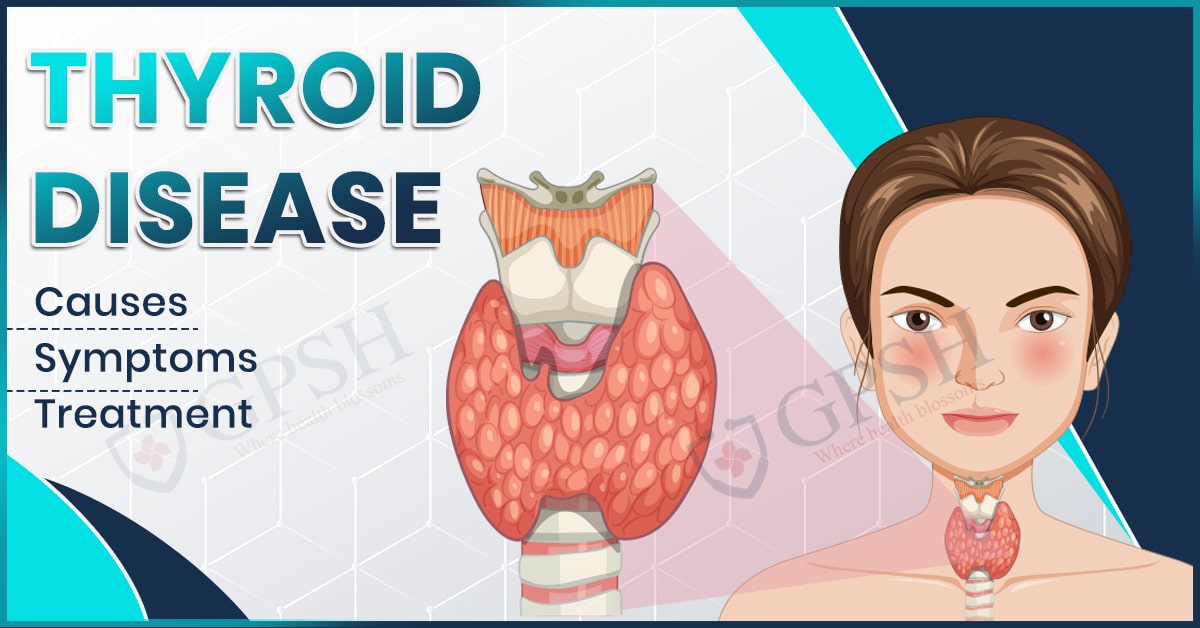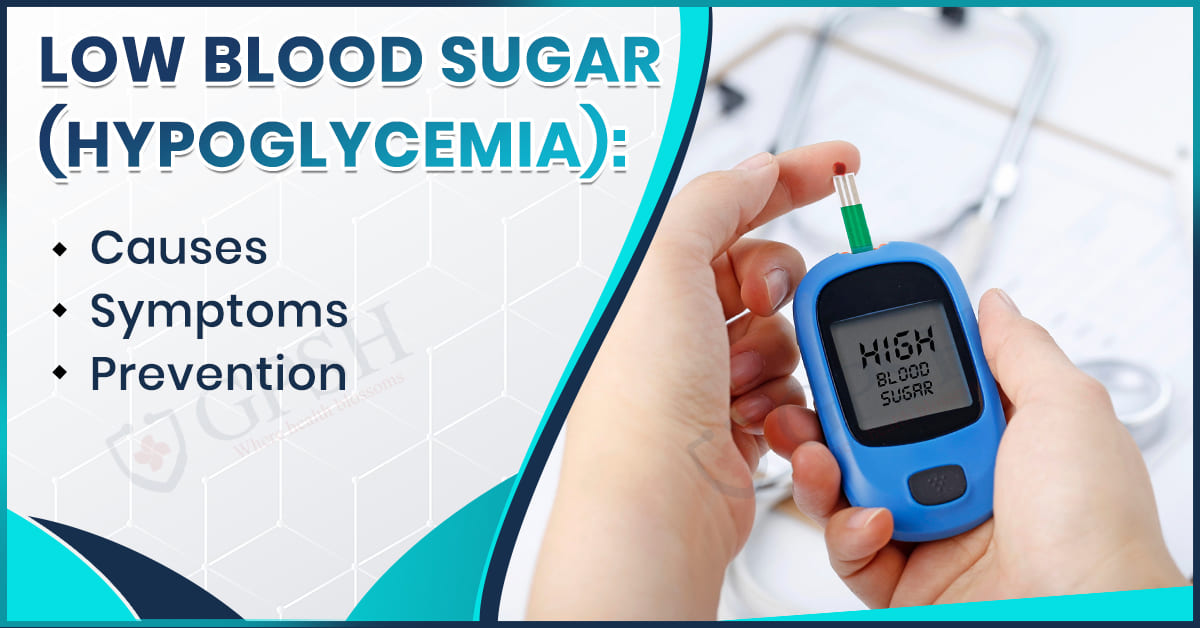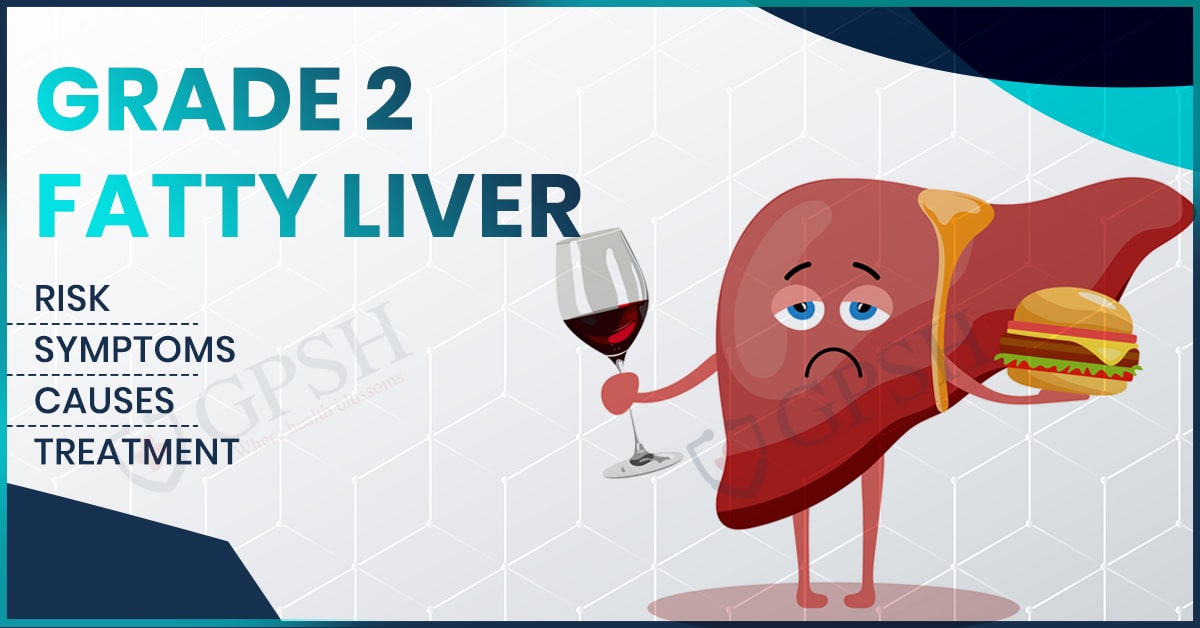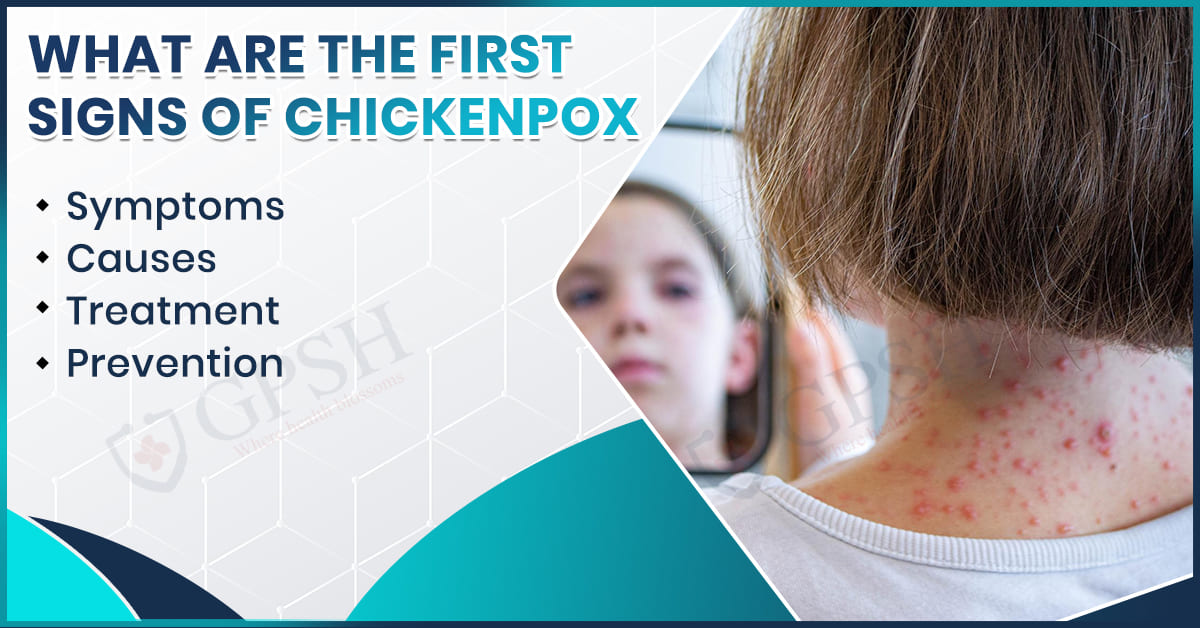Introduction
Thyroid disease is quite common, occurring when the thyroid gland-located in the anterior neck, having somewhat of a butterfly shape-tends to malfunction. It may secrete an excess of hormone (hyperthyroidism) or too little (hypothyroidism), both of which come with their array of symptoms, such as fatigue, weight fluctuations, irritability, and irregular heartbeat. Causes can be varied, such as autoimmune disorders, iodine imbalance, or even genetic factors.
Fortunately, early intervention with appropriate treatment can offer one the best chance at controlling the symptoms of thyroid disorders. Expert endocrinologists at Shekhawati Hospital will diagnose correctly and put each patient on an individual medication regimen to bring them back into balance and health.
What Is Thyroid Disease and How Does It Affect Your Body?
Thyroid disease refers to anything that interrupts the construction or function of the thyroid gland, which is essential in maintaining metabolism, heart rate, and mood. Various situations occur as hormone levels go out of alignment inside the body. Feeling fatigued, some weight gain, and feeling cold are conditions that one might experience in hypothyroidism; in contrast, a faster heartbeat, anxiety, and weight loss can occur if there is hyperthyroidism. Neck swelling or goiter and nodules on the thyroid may also be present. Treatment is better if these signs are detected early.
How to Know If You Have a Thyroid Problem?
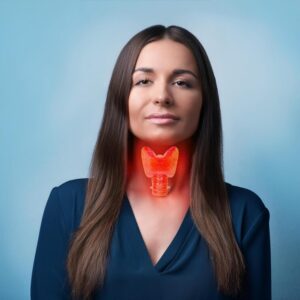
Thyroid issues can impact your energy, weight, mood, and overall health. Early detection of symptoms allows timely treatment and prevents complications. Here are common signs of thyroid problems:
- Unexplained Fatigue: Constant tiredness despite adequate rest may indicate hypothyroidism.
- Sudden Weight Changes: Weight gain (hypothyroidism) or weight loss (hyperthyroidism) without changes in diet or exercise.
- Mood Changes: Depression, anxiety, or irritability could result from imbalanced thyroid hormones.
- Irregular Periods: Heavier, lighter, or missed periods might signal thyroid dysfunction.
- Thinning Hair or Hair Loss: Both hyperthyroidism and hypothyroidism can cause hair loss.
- Temperature Sensitivity: Feeling unusually cold suggests hypothyroidism; feeling hot indicates hyperthyroidism.
- Dry Skin and Brittle Nails: Common signs of low thyroid activity.
- Heart Rate Changes: Slow pulse in hypothyroidism; rapid heartbeat in hyperthyroidism.
- Digestive Issues: Constipation with hypothyroidism; diarrhea with hyperthyroidism.
You Can Also Read:- Yoga for a Healthy Heart: Poses and Practices to Boost Cardiovascular Wellness
Why Does the Thyroid Cause So Many Health Issues?
The thyroid, though small, plays a vital role in overall health by producing T3 and T4 hormones that regulate metabolism, energy, mood, and body temperature. When thyroid function is disrupted, it affects various body systems:
- Controls Metabolism: Regulates how the body uses energy, impacting weight, digestion, and energy levels.
- Influences Heart Function: Affects heart rate and blood pressure, leading to palpitations or a slow heartbeat.
- Affects Mental Health: Imbalances can cause anxiety, depression, mood swings, and concentration issues.
- Regulates Body Temperature: Hypothyroidism causes cold sensitivity; hyperthyroidism leads to heat intolerance.
- Impacts Reproductive Health: Influences menstrual cycles, fertility, and pregnancy health.
- Supports Growth and Development: Essential for physical and mental development in children.
- Vital for Organ Function: Thyroid hormones are necessary for the proper functioning of nearly every organ system.
What Causes Thyroid Problems in Men and Women?

Thyroid disorders can affect both men and women, but are more common in women. They often result from a mix of medical, environmental, and lifestyle factors. Common causes include:
- Autoimmune Disorders: Hashimoto’s thyroiditis causes hypothyroidism, while Graves’ disease leads to hyperthyroidism.
- Iodine Imbalance: Both iodine deficiency and excess can disrupt thyroid hormone production.
- Genetics: A family history of thyroid problems increases your risk.
- Hormonal Changes: Pregnancy, menopause, and other hormonal shifts can trigger thyroid issues, especially in women.
- Radiation Exposure: Previous radiation to the neck or chest may damage the thyroid gland.
- Thyroid Nodules or Goiter: Abnormal growths can affect hormone levels.
- Medications: Drugs like lithium and amiodarone can interfere with thyroid function.
- Pituitary Disorders: Problems with the pituitary gland can impair thyroid hormone regulation.
- Infections: Viral or bacterial infections can inflame the thyroid (thyroiditis).
- Stress and Lifestyle: Chronic stress, poor diet, and lack of exercise may contribute to thyroid imbalances.
You Can Also Read:- Irregular Periods: What Your Body Is Trying to Tell You
Best Brain Tumor Treatment Options You Should Know About
Brain tumor treatment depends on the tumor’s type, size, location, and whether it is benign or malignant. Early diagnosis and personalized care offer the best results. Key treatment options include:
- Surgery: Primary option to remove as much of the tumor as safely possible.
- Radiation Therapy: Destroys tumor cells using high-energy rays, either as a primary or follow-up treatment.
- Chemotherapy: Uses drugs to kill cancer cells, often for malignant or recurring tumors.
- Targeted Therapy: Attacks specific genes or proteins involved in tumor growth with fewer side effects.
- Immunotherapy: Strengthens the immune system to fight tumor cells; effective for certain brain cancers.
- Steroids and Medications: Reduce swelling, inflammation, and manage symptoms like seizures and headaches.
- Tumor Treating Fields (TTF): Non-invasive electric fields slow cancer cell growth, mainly in glioblastoma cases.
- Rehabilitation Therapy: Supports recovery of physical, speech, and daily functions after treatment.
- Clinical Trials: Offers access to experimental therapies for eligible patients.
Which Thyroid Medication Works Best for Your Condition?
The best thyroid medication depends on the type and severity of your thyroid disorder, whether you have hypothyroidism (underactive thyroid) or hyperthyroidism (overactive thyroid). Treatment is tailored to individual needs based on hormone levels, age, overall health, and symptoms.
For Hypothyroidism:
- Levothyroxine (Synthroid, Eltroxin, Euthyrox): The most commonly prescribed medication; it’s a synthetic form of the T4 hormone that helps normalize thyroid levels.
- Liothyronine (Cytomel): A synthetic form of T3, used in specific cases when T4 alone doesn’t relieve symptoms.
- Natural Desiccated Thyroid (NDT) (e.g., Armour Thyroid): Contains both T3 and T4, derived from animal glands, is less commonly used, and not suitable for everyone.
For Hyperthyroidism:
- Methimazole (Tapazole): Commonly used to reduce thyroid hormone production; preferred for long-term treatment.
- Propylthiouracil (PTU): Often used in early pregnancy or for patients who can’t tolerate methimazole.
- Beta-Blockers (e.g., Propranolol): Do not treat the thyroid directly, but help control symptoms like rapid heart rate and tremors.
- Radioactive Iodine Therapy: Destroys overactive thyroid cells and may lead to hypothyroidism, which then requires hormone replacement.
- Thyroid Surgery (Thyroidectomy): Recommended for large goiters, cancer, or when medications aren’t effective.
What Are the Different Types of Thyroid Disorders?
Thyroid disorders arise when the gland produces too much or too little hormone, enlarges, or develops abnormal growths. Common types include:
- Hypothyroidism: Underactive thyroid causing fatigue, weight gain, dry skin, and depression, often due to Hashimoto’s thyroiditis.
- Hyperthyroidism: Overactive thyroid leading to weight loss, rapid heartbeat, anxiety, and heat intolerance, commonly from Graves’ disease.
- Goiter: Enlargement of the thyroid, usually from iodine deficiency, autoimmune conditions, or nodules.
- Thyroid Nodules: Lumps within the thyroid, mostly benign but occasionally cancerous or hormone-disrupting.
- Thyroid Cancer: Malignant growth in the thyroid, often presenting as a neck lump or swelling.
- Hashimoto’s Thyroiditis: Autoimmune attack on the thyroid, typically resulting in hypothyroidism.
- Graves’ Disease: An Autoimmune disorder causing hyperthyroidism, often with eye-related symptoms.
- Thyroiditis: Inflammation of the thyroid, which can be temporary or chronic, leading to hypo- or hyperthyroidism.
Who Is at Risk for Thyroid Disease and Why?
Thyroid disorders can occur in a person; however, certain syndromes put an individual at an increased risk. Awareness leads to detection, timely treatment, and prevention of the development of complications. Major risk groups include:
- Women: At least 8 times more at risk of developing thyroid problems, right from pregnancy to menopause, and after.
- Age: Increased risk of hypothyroidism with age over 60 years.
- Family History: With a close relative having thyroid disease, there is an increased risk.
- Autoimmune Diseases: Examples would be type 1 diabetes, lupus, and rheumatoid arthritis.
- However, Thyroid Surgery or Radiation: Neck radiation in the past or thyroidectomy puts you at risk.
- Pregnant and Postpartum Women: Hormonal changes during pregnancy increase the chances of thyroid problems.
- Iodine Imbalance: Both too little and too much iodine can destroy normal thyroid functions.
Conclusion
Thyroid conditions spread widely, even reaching metabolism, mental status, and fertility. If one learns to recognize symptoms and risk factors early, then it can be treated in time with a fair outcome. Disorders of the thyroid are grouped into the endocrine disorder category. Shekhawati Hospital hosts expert thyroid care endocrinologists, who provide end-to-end care, from diagnosis and patient counseling to treatment plans, helping patients obtain long-term rehabilitated health and well-being.

